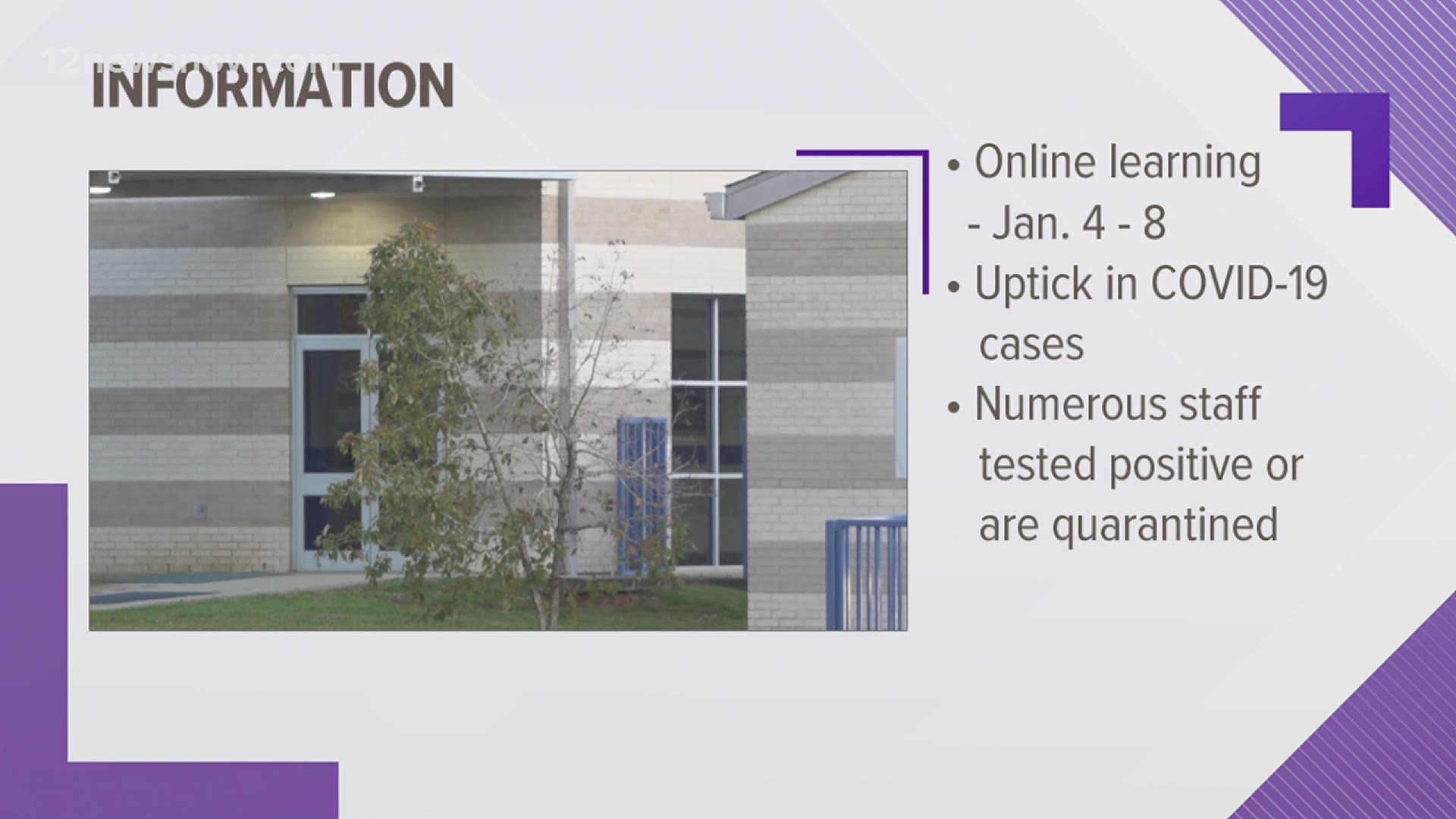JASPER, Texas — Jasper ISD will switch over to virtual learning for 'at least January 4th-8th' after the district 'received word that active cases in our county jumped to over 230.'
According to the post, numerous staff members have either received positive COVID-19 test results, or are quarantined.
The district thanked parents for patience 'as we strive to keep all students and staff safe while focusing on providing the best education' for students.
Questions should be directed to the student's campus. The post asked parents to 'remain diligent in social distancing' to allow the district to 'get back to in-person learning as soon as possible.'
RELATED: Where can I get a COVID-19 test?
We received word that active cases in our county jumped to over 230, and have numerous staff either positive or quarantined. Therefore, out of an abundance of caution Jasper ISD will move to at-home learning for at least January 4th-8th. Thank you for your patience as we strive to keep all students and staff safe while focusing on providing the best education for all our students. With questions about home learning and devices please contact your child’s campus. We ask that you remain diligent in social distancing at this time so we can get back to in-person learning as soon as possible.
Coronavirus symptoms
The symptoms of coronavirus can be similar to the flu or a bad cold. Symptoms include a fever, cough and shortness of breath, according to the Centers for Disease Control.
Most healthy people will have mild symptoms. A study of more than 72,000 patients by the Centers for Disease Control in China showed 80 percent of the cases there were mild.
But infections can cause pneumonia, severe acute respiratory syndrome, kidney failure and even death, according to the World Health Organization. Older people with underlying health conditions are most at risk.
The CDC believes symptoms may appear anywhere from two to 14 days after being exposed.
RELATED: VERIFY: No, members of Congress who are self-quarantined for coronavirus cannot vote remotely
Human coronaviruses are usually spread through...
- The air by coughing or sneezing
- Close personal contact, such as touching or shaking hands
- Touching an object or surface with the virus on it, then touching your mouth, nose or eyes before washing your hands.
Help stop the spread of coronavirus
- Stay home when you are sick.
- Eat and sleep separately from your family members
- Use different utensils and dishes
- Cover your cough or sneeze with your arm, not your hand.
- If you use a tissue, throw it in the trash
Lower your risk
- Wash your hands often with soap and water for at least 20 seconds. If soap and water are not available, use an alcohol-based hand sanitizer.
- Avoid touching your eyes, nose, and mouth with unwashed hands.
- Avoid close contact with people who are sick.
- Clean and disinfect frequently touched objects and surfaces.
- If you are 60 or over and have an underlying health condition such as cardiovascular disease, diabetes or respiratory illnesses like asthma or COPD, the World Health Organization advises you to try to avoid crowds or places where you might interact with people who are sick.

